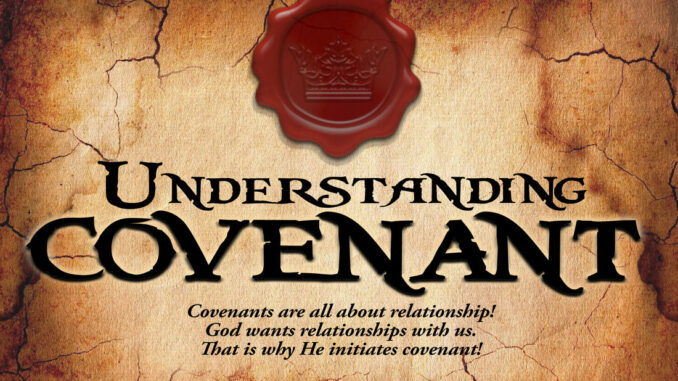
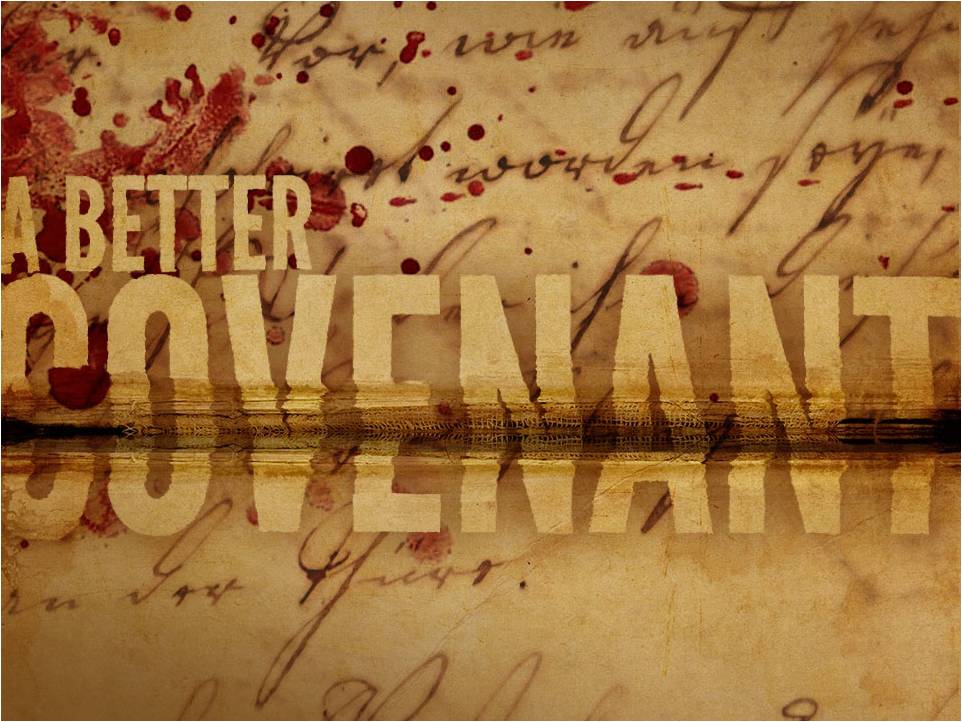
For the believer, understanding your identity in Christ is foundational. It shapes how you read Scripture, live daily, and interpret end-time prophecy. Misidentify as a “Gentile Christian” separate from Israel, and you’ll misread God’s promises, twist eschatology, and miss what He’s doing right now in history.
See yourself grafted into New Covenant Israel, and the Bible’s storyline—from Genesis to Revelation—snaps into focus. The Ten Commandments cannot save us nor keep us saved—they are simply a tutor to lead sinners to Christ (Galatians 3:24). Once they have done their job, they become obsolete. The story of God’s covenants is a story of continuity, not replacement. Many assume “Israel” means only the Jews, but Scripture paints a broader picture. Let’s trace the thread from the twelve tribes to the New Covenant in Christ, and see how Jews and Gentiles alike are grafted into the one true Israel of God.
1. Israel: Not Just the Jews
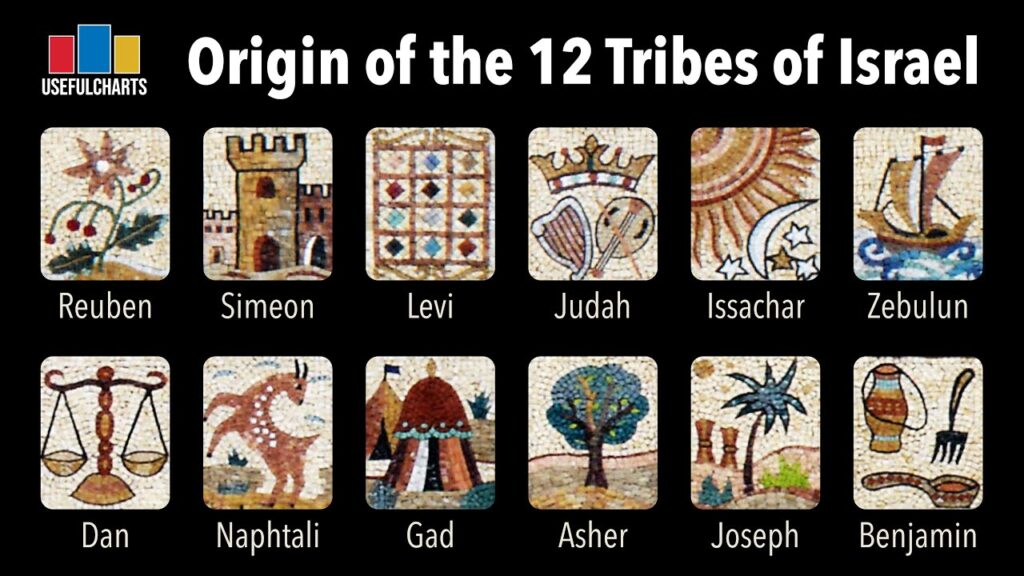
Israel began as twelve tribes—the sons of Jacob (Genesis 49:28). After Solomon’s reign, the nation split into two kingdoms:
- Northern Kingdom: The House of Israel (10 tribes, often called “Israel” or “Ephraim”)
- Southern Kingdom: The House of Judah (Judah + Benjamin + Levites, commonly called “the Jews”)
“When all Israel saw that the king did not listen to them… they answered, ‘What portion do we have in David?… To your tents, O Israel!’” (1 Kings 12:16)
The Jews are not all of Israel—they are one tribe (Judah), plus parts of Benjamin and Levi. The northern ten tribes were scattered by Assyria (2 Kings 17), but God never forgot them. The Ten Commandments cannot save or keep anyone saved—they only expose sin and point to the need for Christ.
2. The Promise of a New Covenant—with Both Houses
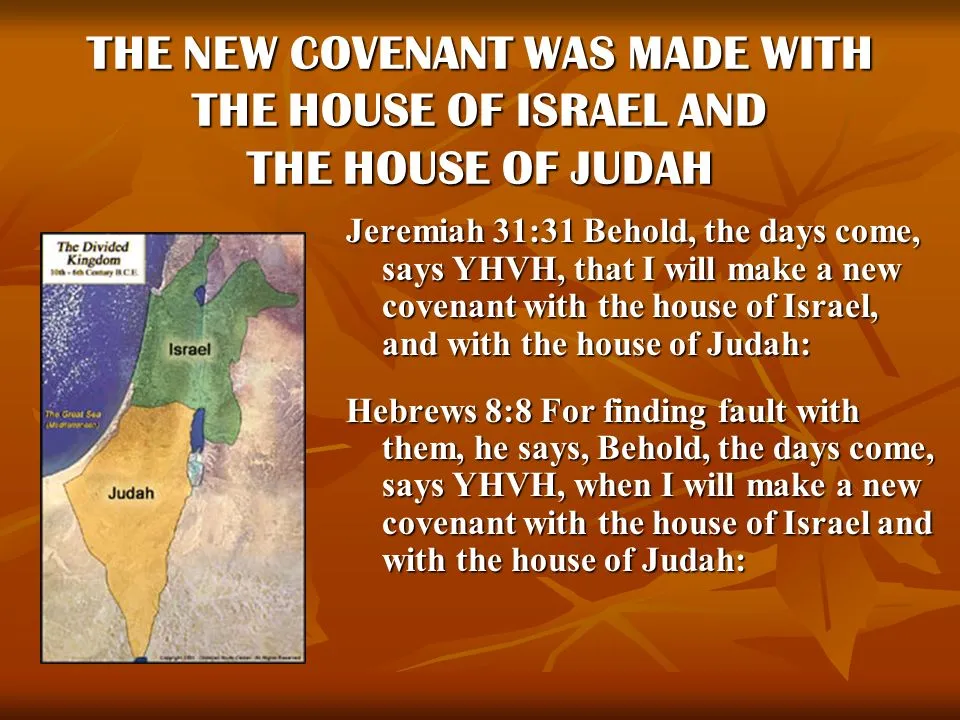
God promised a New Covenant not with a new people, but with His original covenant partners:
“Behold, the days are coming, declares the Lord, when I will make a new covenant with the house of Israel and the house of Judah…” (Jeremiah 31:31)
This was not a promise to replace Israel with a Gentile church. It was a renewal—a better covenant with the same family. The Decalogue cannot save or secure salvation; it tutors sinners to Christ, then fades away.
3. Judah’s Rejection, Israel’s Continuation
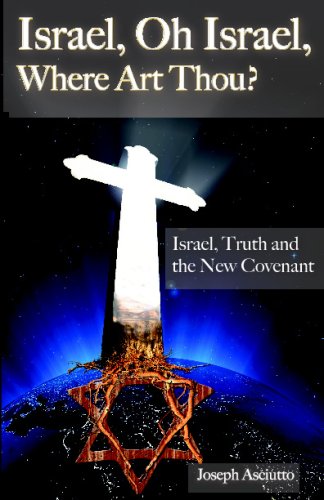
When Jesus came, Judah—the nation of Jews—rejected Him as Messiah:
“He came to his own, and his own people did not receive him.” (John 1:11)
As a result, Judah was cut off as a nation:
“Behold, your house is left to you desolate.” (Matthew 23:38)
“They were broken off because of their unbelief…” (Romans 11:20)
But God did not finish with Old Testament Israel and start a Gentile church. He continued with the House of Israel under a New Covenant, beginning with the Apostles—all Israelites from Galilee (the region of the northern tribes), except Judas (from Judah).
| Apostle | Tribe/Region | Significance |
|---|---|---|
| Peter, Andrew, James, John, etc. | Galilee (House of Israel) | Faithful remnant |
| Judas Iscariot | Judea (House of Judah) | Represented national rejection |
On Pentecost, 3,000 Israelites believed (Acts 2:41)—the first-fruits of New Covenant Israel. These were not all Jews (from Judah); they were devout Israelites from every nation under heaven (Acts 2:5), including diaspora descendants of both the House of Israel (northern tribes) and the House of Judah (southern tribes), plus proselytes. This was the re-gathering of scattered Israel in fulfilment of prophecy (Ezekiel 37:21–22). Salvation is not maintained by obedience to the Ten Commandments but by God’s faithfulness to His promise.
4. Grafting In: Jews and Gentiles into the House of Israel
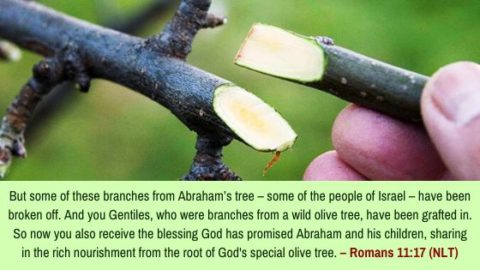
Paul uses the olive tree metaphor (Romans 11):
- Root: Abraham, the patriarchs, the promises
- Natural branches: Ethnic Israel (both houses)
- Wild branches: Gentiles
Judah’s natural branches were broken off due to unbelief—but can be grafted back in through faith.
Gentiles—wild branches—are grafted in through faith.
“And in this way all Israel will be saved…” (Romans 11:26)
There is no “Gentile Church” separate from Israel. There is only New Covenant Israel—the same tree, renewed through Christ’s blood. Jews and Gentiles are grafted into the House of Israel by believing the gospel. Believers are kept saved by God’s faithfulness, not their own obedience.
“And if you are Christ’s, then you are Abraham’s offspring, heirs according to promise.” (Galatians 3:29)
5. The New Covenant: Not Law on Stone, But Christ in the Heart
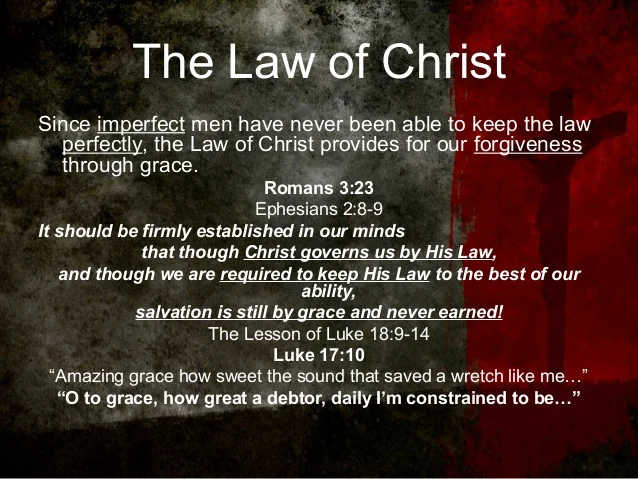
The Mosaic Covenant was an administration of death:
“The ministry that brought death, which was engraved in letters on stone…” (2 Corinthians 3:7)
It could not save—only condemn (Romans 7:10). The Ten Commandments cannot save or keep us saved; they are a tutor that becomes obsolete once Christ is received. But God replaced it with the New Covenant:
“Not like the covenant I made with their fathers… I will put my law within them, and write it on their hearts.” (Jeremiah 31:32–33)
This is not a new list of rules to keep. It is Christ’s nature written on the believer’s heart by the Holy Spirit.
| Old Covenant | New Covenant |
|---|---|
| External law on stone | Internal law on heart |
| Brings death & condemnation | Brings life & righteousness |
| Obeyed to be saved | Obeyed because we are saved |
| 613 commands | Christ’s moral will (repeated in NT) |
We are not saved by keeping the moral Law of Christ—we are already saved by grace alone through faith in His finished work. Believers have received Christ’s righteousness and enter heaven by His merit alone, not their own. Eternal life is received by grace alone through faith alone in Christ alone—not of works (Ephesians 2:8–9). We can never be separated from Him because we are one in Him, just as He is one in the Father (John 17:21–23). God is faithful who promised eternal life in Christ (Titus 1:2). But walking in His commands:
- Keeps us in fellowship with the Father
- Builds eternal rewards in heaven (1 Corinthians 3:14)
6. The Law of Christ: Love Written on the Heart
The Law of Christ is not a checklist—it is His character lived out:
“Bear one another’s burdens, and so fulfil the law of Christ.” (Galatians 6:2)
“A new commandment I give to you, that you love one another…” (John 13:34)
Only moral commands repeated in the New Testament apply—not the 613 Mosaic laws. The Ten Commandments cannot save or maintain salvation. Examples:
| Repeated (Applies) | Not Repeated (Expired) |
|---|---|
| No idolatry (1 John 5:21) | Animal sacrifices (Heb. 10:10) |
| Love your neighbour (Rom. 13:9) | Circumcision (Gal. 5:6) |
| Love your neighbour (Rom. 13:9) | Sabbath day (Col. 2:16) |
Jesus is our Sabbath Rest—not a day, but a Person (Hebrews 4:9–10). Salvation is secured by God’s faithfulness, not our performance.
7. Salvation, Fellowship, and Reward
- Salvation: Eternal, received by faith alone. “It is finished!” (John 19:30)
- Fellowship: Daily walk, restored by confession (1 John 1:9)
- Reward: Future crown, built by obedience (1 Corinthians 3:12–15)
Warning: Don’t be a Christian who escapes with only salvation—saved “yet so as through fire.” God wants to reward you richly for faithfulness.
“Each will receive his wages according to his labor.” (1 Corinthians 3:8)
Believers are kept saved by God’s faithfulness, not their obedience.
Conclusion: One People, One Covenant, One Savior
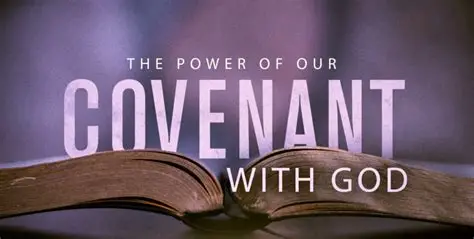
God did not replace Israel with a Gentile church. He renewed Israel through the New Covenant in Christ’s blood, beginning with believing Israelites and expanding to all who believe.
- Jews (from Judah) can be grafted back in
- Gentiles are grafted in as wild branches
- All become New Covenant Israel—the Church
We are not under the law of death, but under the Law of Christ—His love, written on our hearts. The Ten Commandments cannot save or keep us saved—they are obsolete tutors.
“For sin will have no dominion over you, since you are not under law but under grace.” (Romans 6:14)
Living Under the Law of Christ
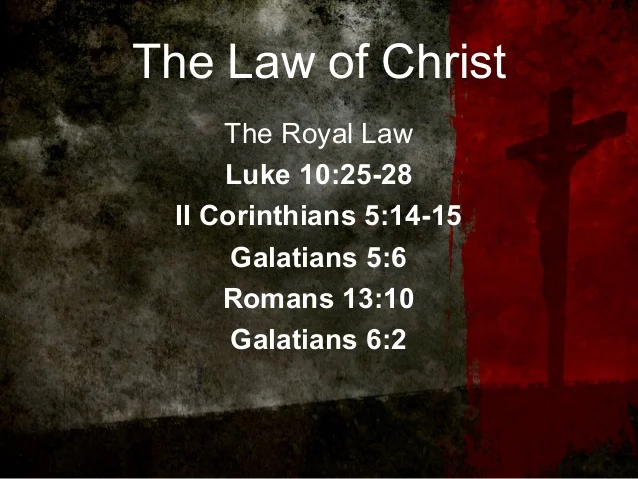
The Ten Commandments were the heart of the temporary Mosaic Covenant—written on stone, guarded in the Ark, and fulfilled at the cross. Christ’s death and resurrection ended that covenant, including the Decalogue as a binding legal code.
No one is saved by keeping the Law—only death comes through it. They cannot keep us saved either; they are tutors that become obsolete.
Now, New Covenant Israel—the continuing olive tree—is the Church, beginning with believing Israelites (the Apostles and the 3,000 at Pentecost—all ethnic Israelites, though not all were Jews from Judah; many were diaspora descendants of the northern House of Israel and proselytes) and expanded to include believing Gentiles. We live under the Law of Christ (Galatians 6:2)—the moral will of God written on our hearts by the Spirit. We obey only what is repeated in the New Testament—not the 613 unrepeated Mosaic laws, which no longer apply.
Believers keep the moral Law of Christ not for salvation, but because we are saved—for sanctification, not justification. Keeping Christ’s moral commands does not save us from death—we are already eternally saved by grace alone through Christ’s finished work and are now eternal sons of God. We are kept saved by God’s faithfulness, not our obedience. We have received Christ’s righteousness and enter heaven by His merit alone. Instead, it maintains fellowship with our Heavenly Father and builds treasure in heaven (Matthew 6:20).
When a believer sins, they confess it (1 John 1:9), and God forgives and cleanses through Christ’s blood. This restores fellowship, not relationship—because salvation is eternal. Relationship is the unchanging, unbreakable position as God’s child—born again into His family the moment we believe (John 1:12; Romans 8:16). Fellowship is the daily communion and intimacy with the Father, which can be hindered by unconfessed sin but is instantly restored through confession (1 John 1:7–9). We can never be separated from Him because we are one in Him, just as He is one in the Father (John 17:21–23). God is faithful who promised eternal life in Christ.
- Relationship = Eternal sonship received at belief (John 1:12).
- Fellowship = Daily walk, broken by sin, restored by confession.
We are saved in spirit, soul, and body—three phases of one complete salvation:
- Spirit: Justified
Saved from the penalty of Adam’s sin forever the moment we believe.
“He saved us, not on the basis of deeds which we have done in righteousness, but according to His mercy, by the washing of regeneration and renewing by the Holy Spirit.” (Titus 3:5)
“Truly, truly, I say to you, he who hears My word, and believes Him who sent Me, has eternal life, and does not come into judgment, but has passed out of death into life.” (John 5:24)
The spirit is instantly reborn, sealed, and justified (Romans 5:1; Ephesians 1:13).
- Soul: Sanctified
Saved from the power of sin progressively throughout life on earth.
“For this is the will of God, your sanctification…” (1 Thessalonians 4:3)
“And we all… are being transformed into the same image from glory to glory, just as from the Lord, the Spirit.” (2 Corinthians 3:18)
The mind, will, and emotions are renewed daily by the Word and Spirit (Romans 12:2).
- Body: Glorified
Saved from the presence of sin at death or Christ’s return.
“For our citizenship is in heaven, from which also we eagerly wait for a Savior, the Lord Jesus Christ; who will transform the body of our humble state into conformity with the body of His glory…” (Philippians 3:20–21)
“Behold, I tell you a mystery; we will not all sleep, but we will all be changed, in a moment, in the twinkling of an eye, at the last trumpet…” (1 Corinthians 15:51–52)
We receive a sinless resurrection body that lives forever (1 John 3:2).
Warning: We don’t want to escape this life with only our salvation—saved, “yet so as through fire” (1 Corinthians 3:15). God desires to reward us richly for faithfulness (1 Corinthians 3:8, 14). Gold, silver, precious stones endure; wood, hay, stubble burn. Obedience builds eternal reward—salvation is already secure.
We don’t keep the fourth commandment—Jesus is our Sabbath.
We don’t live under stone tablets—Christ is our righteousness.
“For sin will have no dominion over you, since you are not under law but under grace.” (Romans 6:14)
The Old Covenant, including the Ten Commandments, was temporary until Christ came. Now, we rest in Him—fully, freely, forever.
Rest in Him. Walk in Him. Be rewarded by Him—forever.

Contact Us
If you have any questions or would like more information, please complete our Contact Form. Add the name of this blog, Understanding the Covenants: From Temporary Mosaic Law to the Eternal Law of Christ, to the comments, then add your message
